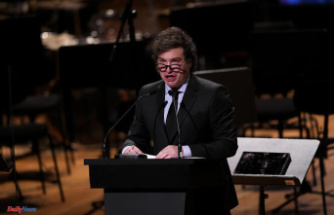The day before, the South Korean government said it had identified 8,000 striking doctors who were likely to be suspended. On Wednesday, March 6, South Korean police summoned the first doctor for questioning.
As part of a massive strike, thousands of young doctors resigned and walked off the job about two weeks ago to protest the government's plan to increase admissions to medical schools, a measure deemed essential by the government in the face of the country's aging population.
The government described this widely followed work stoppage as illegal and set February 29 as the deadline for a resumption. He announced on Tuesday the start of the suspension of the licenses of doctors on strike and requested the opening of an investigation into people linked to the mobilization.
The offices of the Korean Medical Association (KMA), spearhead of the movement, have already been raided. Its main members have been prosecuted for violating medical regulations and banned from traveling. Accused of “aiding and abetting” the protests, KMA member Joo Soo-ho was summoned for questioning on Wednesday.
Public health alert at its highest level
“I came here without any problem because I literally have nothing to hide, and no reason to hide,” the 65-year-old surgeon told reporters before entering the Seoul Metropolitan Police headquarters. “The accusation of incitement cannot be established because we have never encouraged young doctors to resign en masse,” according to him. He said the movement is “non-violent” and urged the government to abandon its “stubbornness” and negotiate.
Wednesday's interrogation is the first of a medical staff member in connection with the ongoing walkouts. Despite the threat of license suspension, most striking young doctors have not returned to work in any meaningful way, according to government data. As of Monday, nearly 9,000 trainee doctors were still on strike.
Seoul claims to have one of the lowest doctor-to-patient ratios among developed countries, and the government insists on admitting 2,000 more students to medical schools each year, starting next year. Doctors are opposed to it, arguing that the measure would harm the quality of service.
The movement, which seriously disrupts the functioning of hospitals, has led the government to raise its public health alert to its highest level.












